The Tea Market Experience – January 2019
The Tea Market Experience is a non-subscription tea club that offers unique, interesting and possibly dubiously labelled teas, bringing you as close as possible to the tea markets of Yunnan without having to hop on a plane.
This month’s tea is a 100g Tuo of sheng “puer” from Laos.
After passing tea shop after tea shop, you see the same scenes – either several older men sitting around smoking, drinking tea and being loud, one or two people packing/unpacking larger boxes, or an uninterested young girl sitting behind the tea table playing with her phone.
This is a bit of a generalization, but probably accurate for 95% of the shops. It sometimes makes choosing a shop feel like an arbitrary decision, that is, until you see a shop that only sells tea from Laos.
Amongst all the uninspired storefronts, this Laos tea seller immediately piqued our interest. Having had good experiences with teas from Laos before, we figured this shop had potential, so we entered, drank some tea and asked the young girl working there some questions. Here’s what she had to say:
How long have you been doing tea?
For 2 to 3 years. The company has been around for 6 or 7 years though.
How do you get your tea?
We produce tea from our own land, but have to pay a fee to the government to collect leaves.
Who do you mainly sell to?
We sell within China. We don’t sell abroad at all.
What makes a good tea? (Cue the sales pitch:)
For our tea, what makes it good is that it doesn’t have the same reputation as puer from Yunnan. The land is very clean and the environment is good. In Yunnan this is very hard to find. It’s not as complex as a lot of other teas in the market, because those are blended. Our tea is a pure representation of the land and the climate. There are some new plantations, but a lot of the trees are left from previous generations.
What kind of tea do you think fits foreign drinkers’ tastes?
Black tea. At a tea expo in Shenzhen our neighbor was selling tea from Sri Lanka and India, which seemed popular with foreigners.
What tea would you serve a foreign customer?
I would ask them what they’re interested in first, then offer something based on that. I would expect they like black tea though.
What advice would you give a western tea drinker?
First of all, learn the terms of how to describe tea. I believe that people need guidance from those with more knowledge. It takes time to develop your senses and understanding. You can’t just turn into an expert by drinking tea at home by yourself.
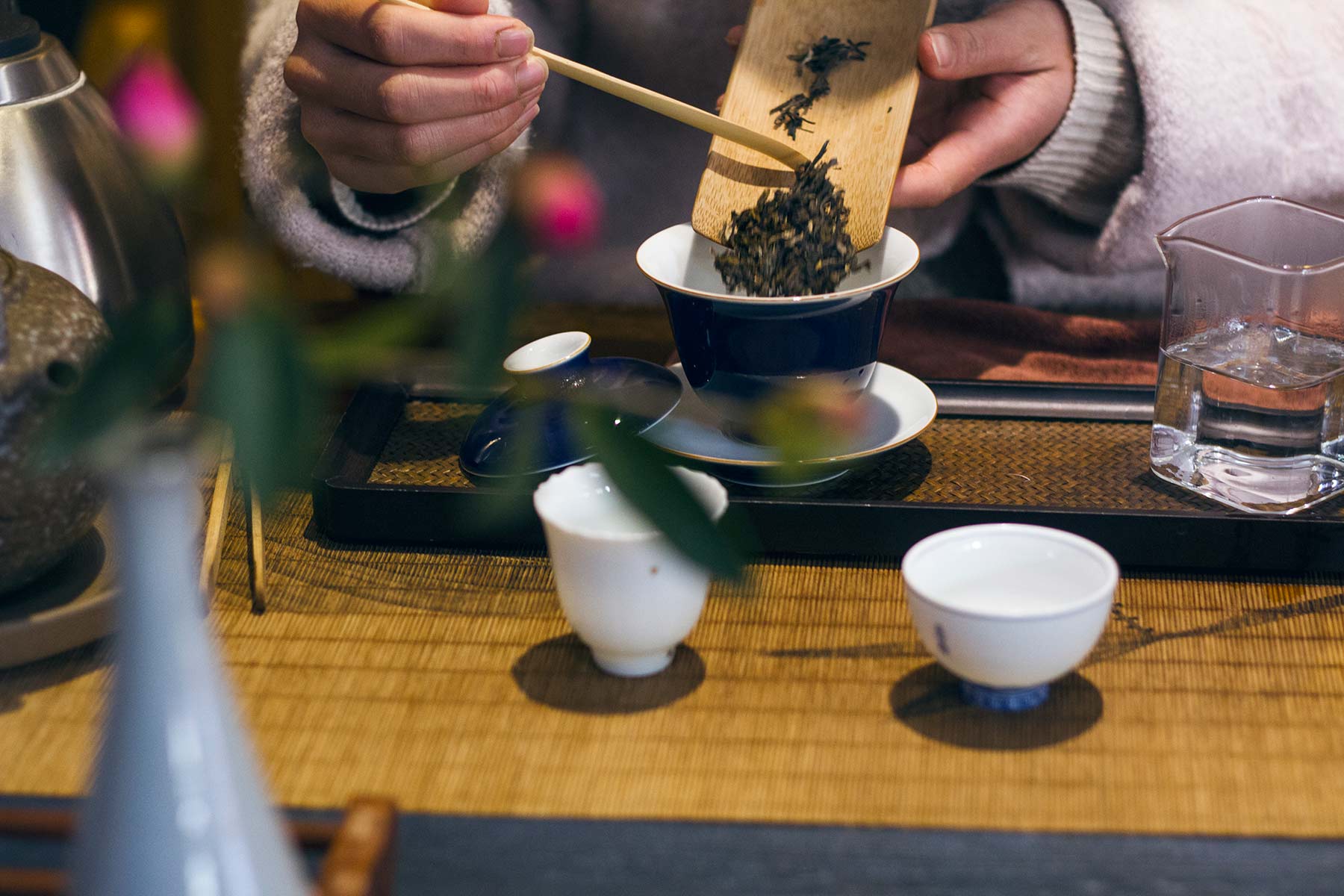
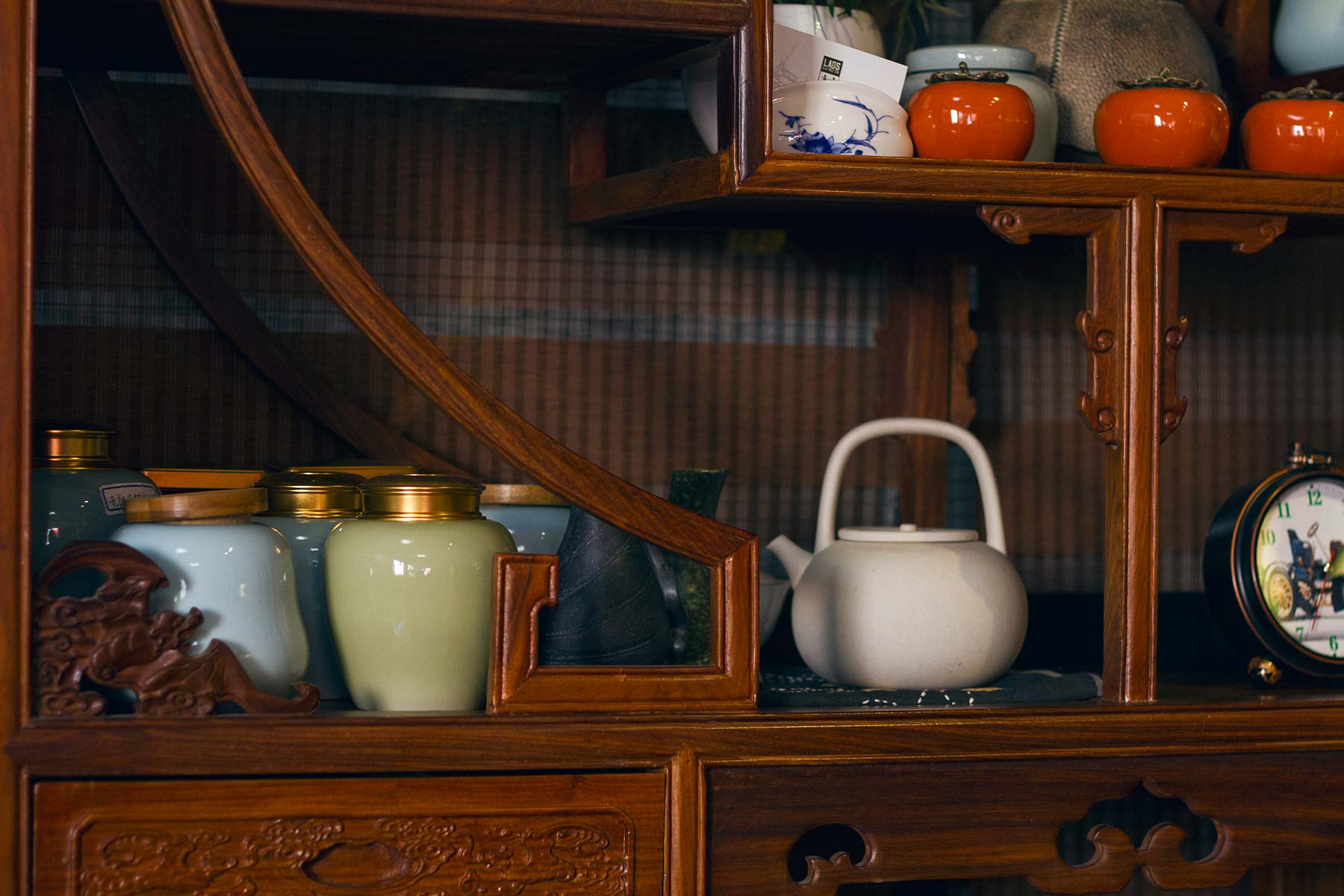
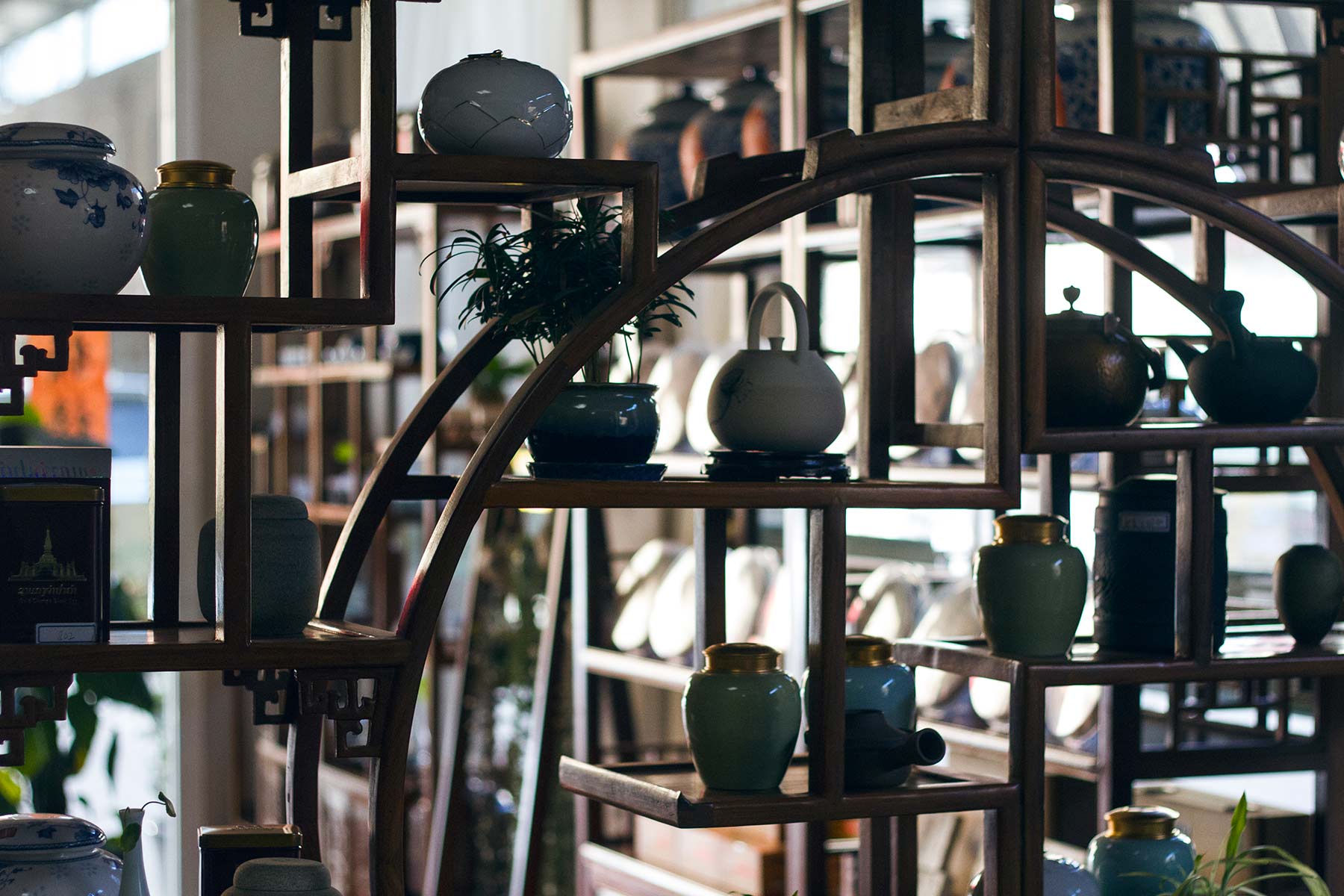
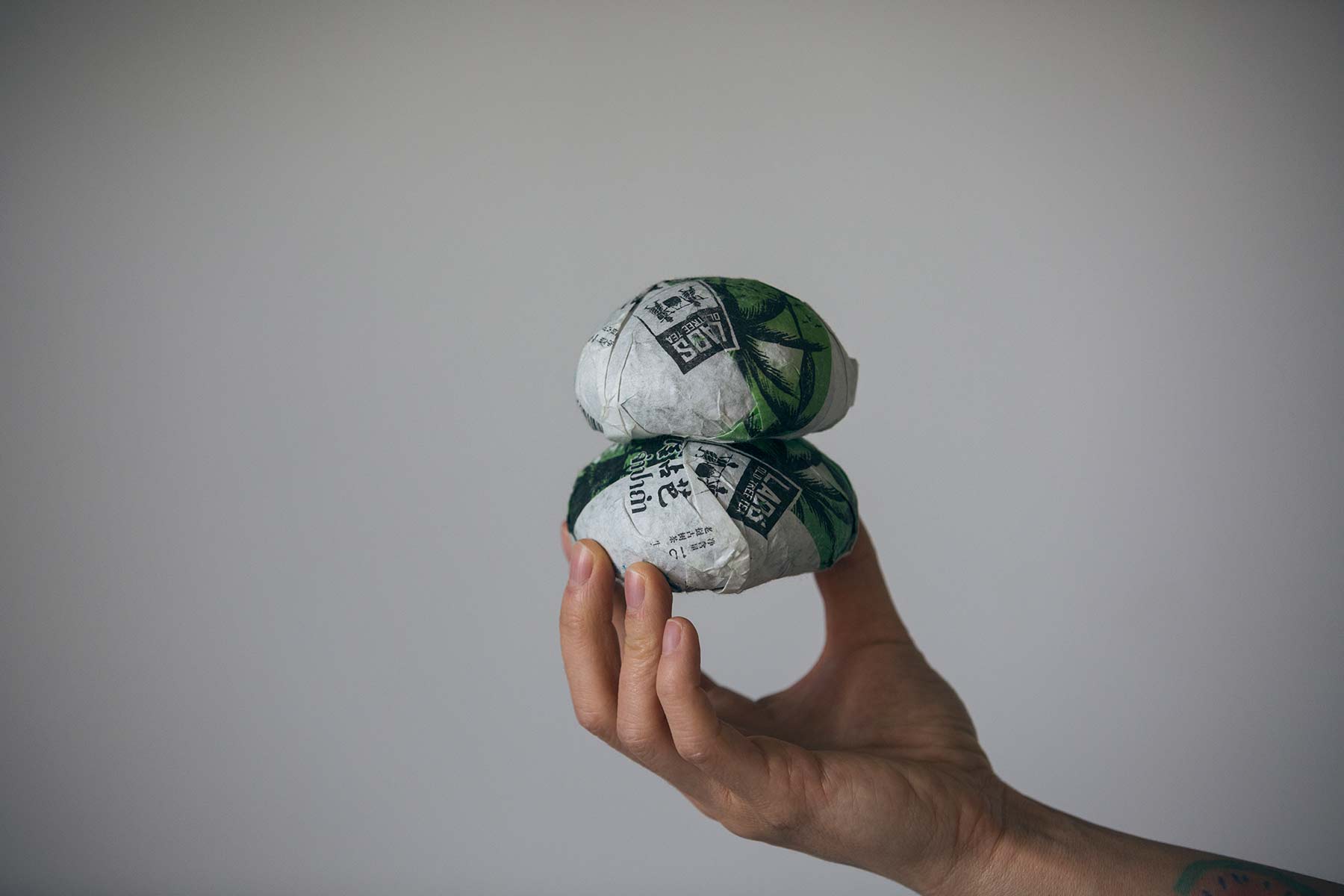
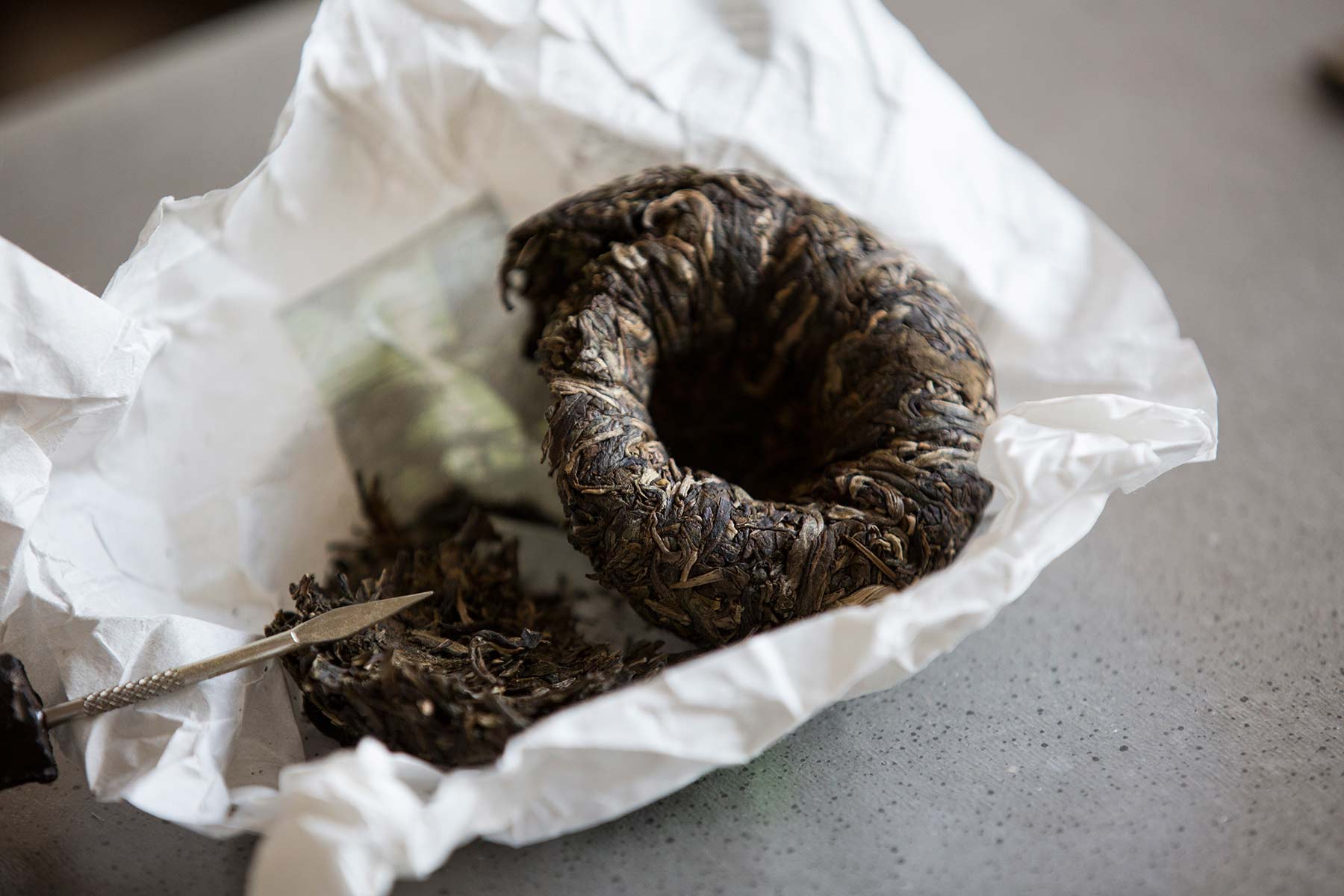
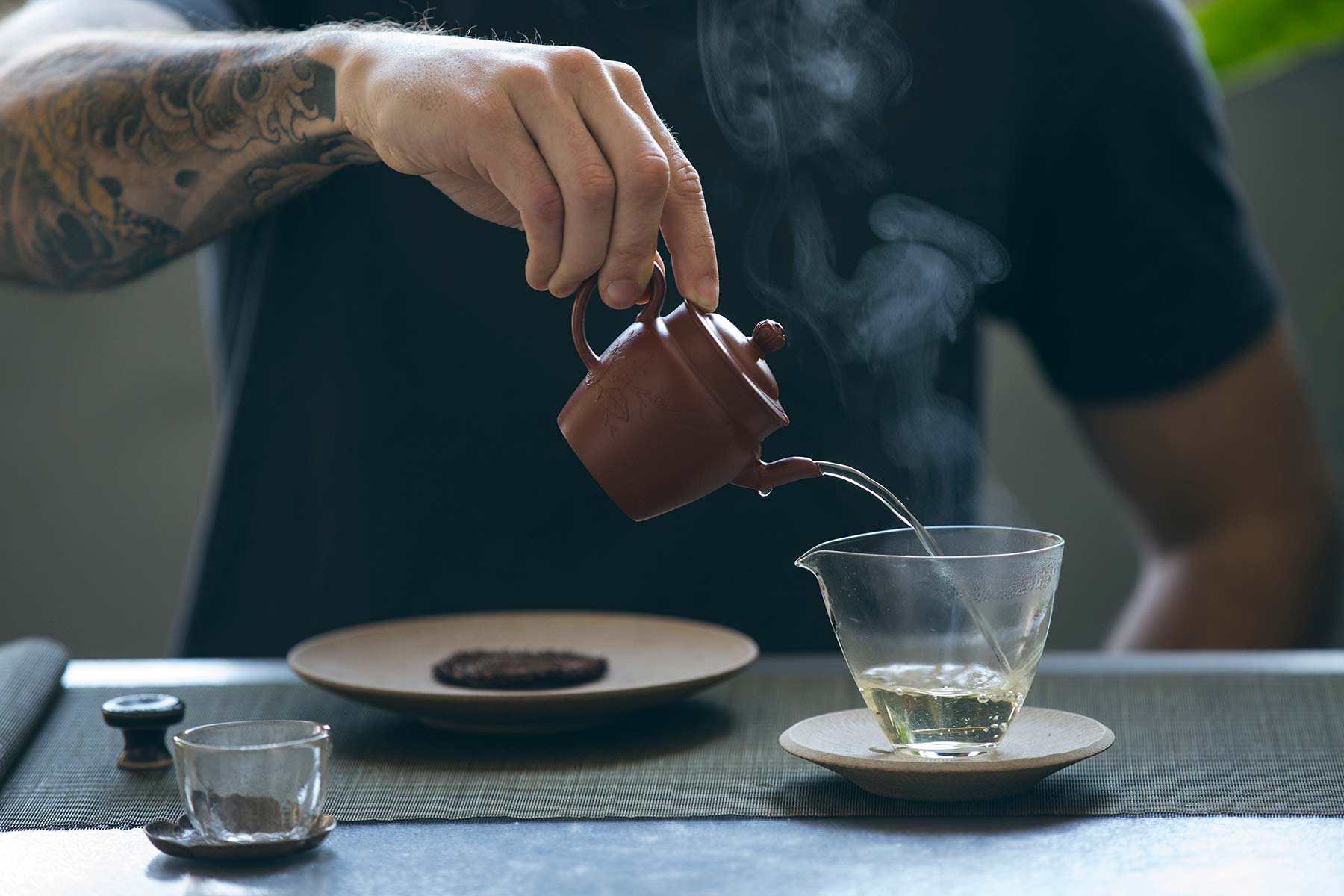
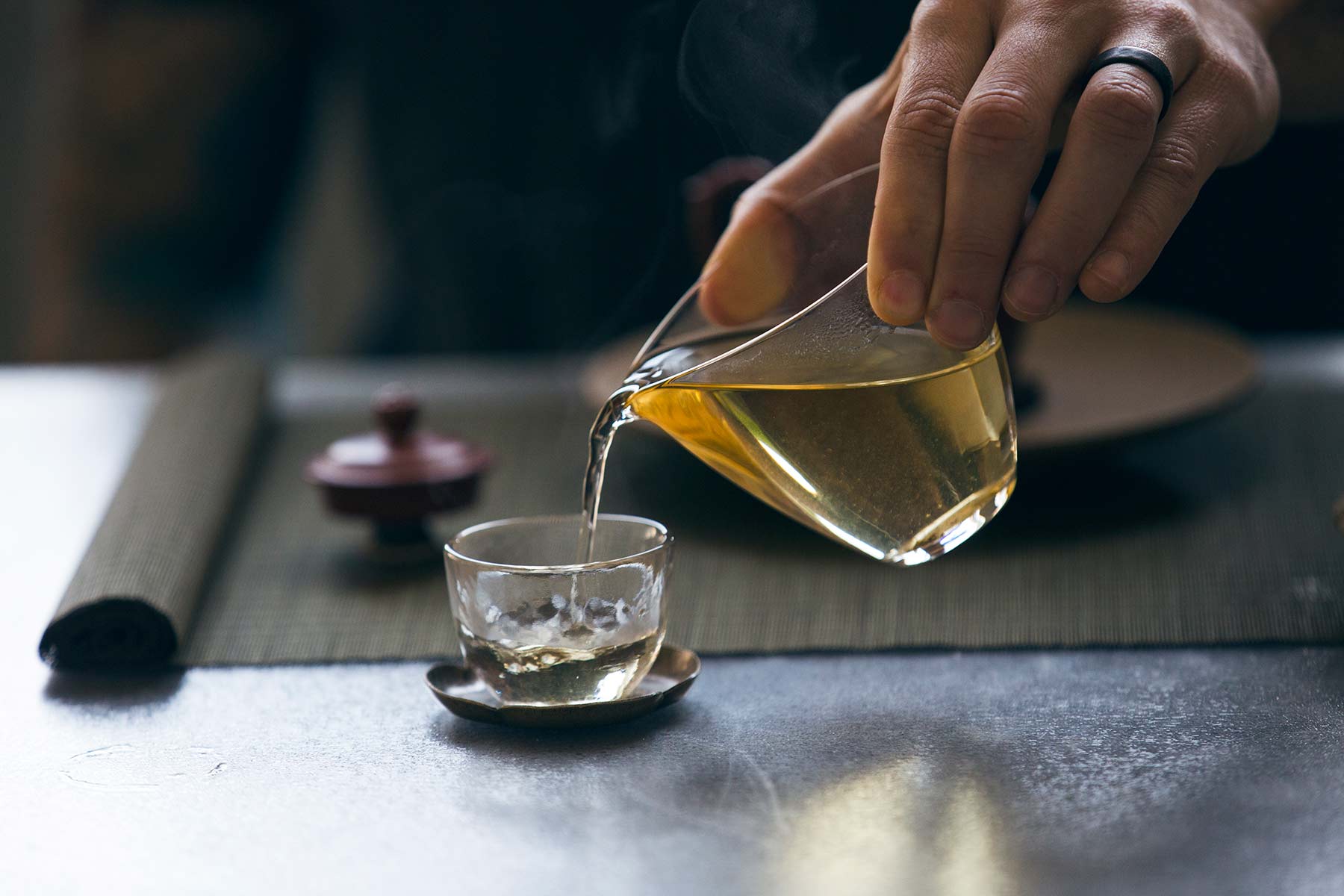
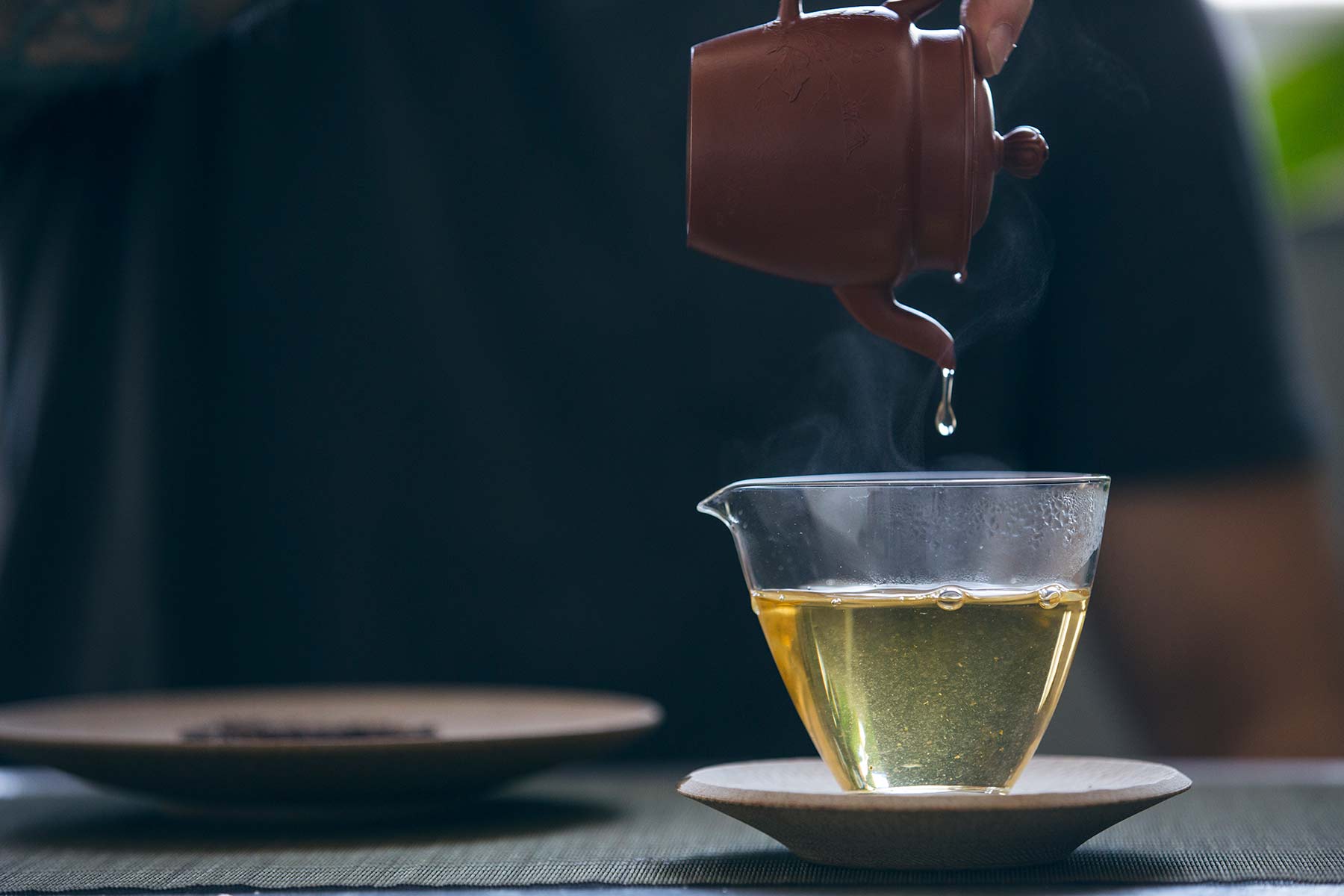


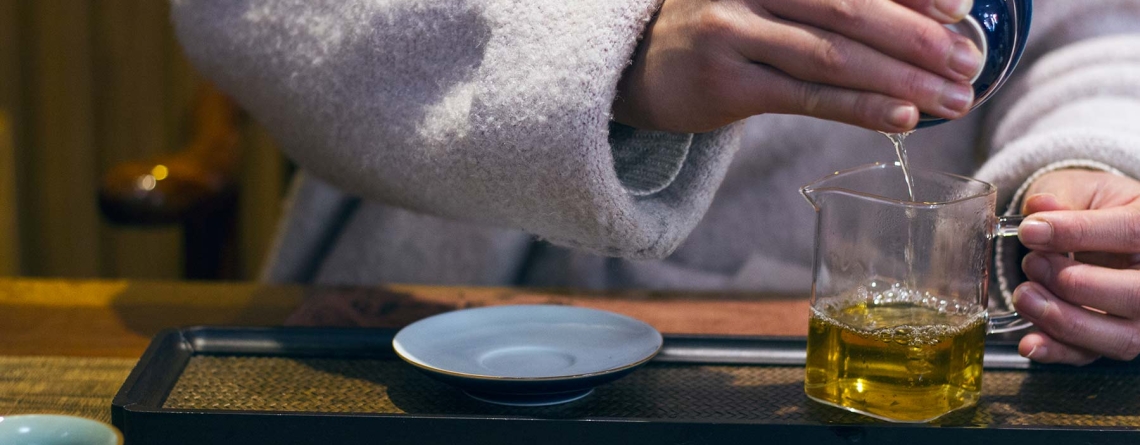
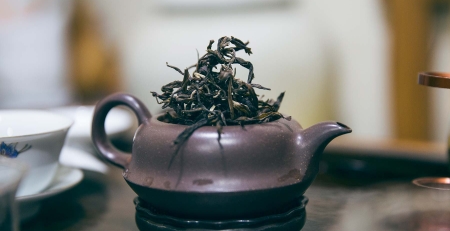
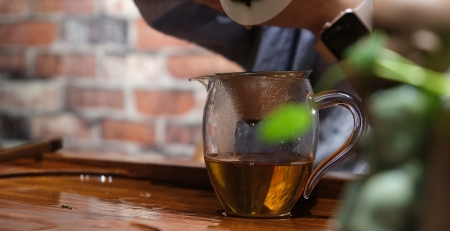
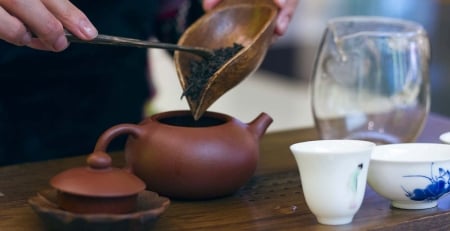
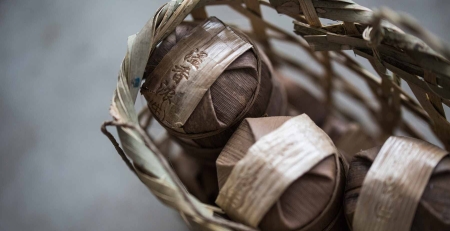
Comment (1)
Love this. I’m very intrigued by these countries bordering Yunnan. I’ve had very good and interesting experiences thus far with the Outlier, as well as Laos tea from another vendor. Definitely grabbing this! Thanks for providing the unique experience!